Abstract
The effect of nitrogen form (NH4-N, NH4-N + NO3−, NO3−) on nitrate reductase activity in roots and shoots of maize (Zea mays L. cv INRA 508) seedlings was studied. Nitrate reductase activity in leaves was consistent with the well known fact that NO3− increases, and NH4+ and amide-N decrease, nitrate reductase activity. Nitrate reductase activity in the roots, however, could not be explained by the root content of NO3−, NH4-N, and amide-N. In roots, nitrate reductase activity in vitro was correlated with the rate of nitrate reduction in vivo. Inasmuch as nitrate reduction results in the production of OH− and stimulates the synthesis of organic anions, it was postulated that nitrate reductase activity of roots is stimulated by the released OH− or by the synthesized organic anions rather than by nitrate itself. Addition of HCO3− to nutrient solution of maize seedlings resulted in a significant increase of the nitrate reductase activity in the roots. As HCO3−, like OH−, increases pH and promotes the synthesis of organic anions, this provides circumstantial evidence that alkaline conditions and/or organic anions have a more direct impact on nitrate reductase activity than do NO3−, NH4-N, and amide-N.
Full text
PDF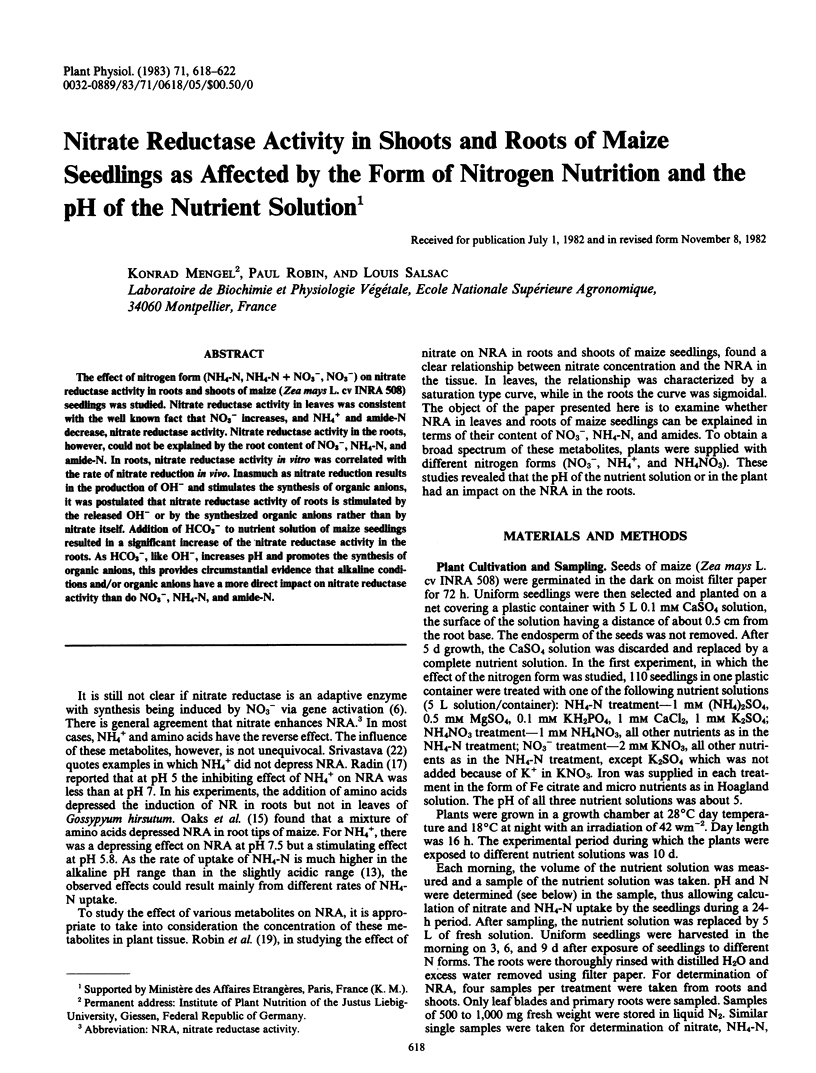
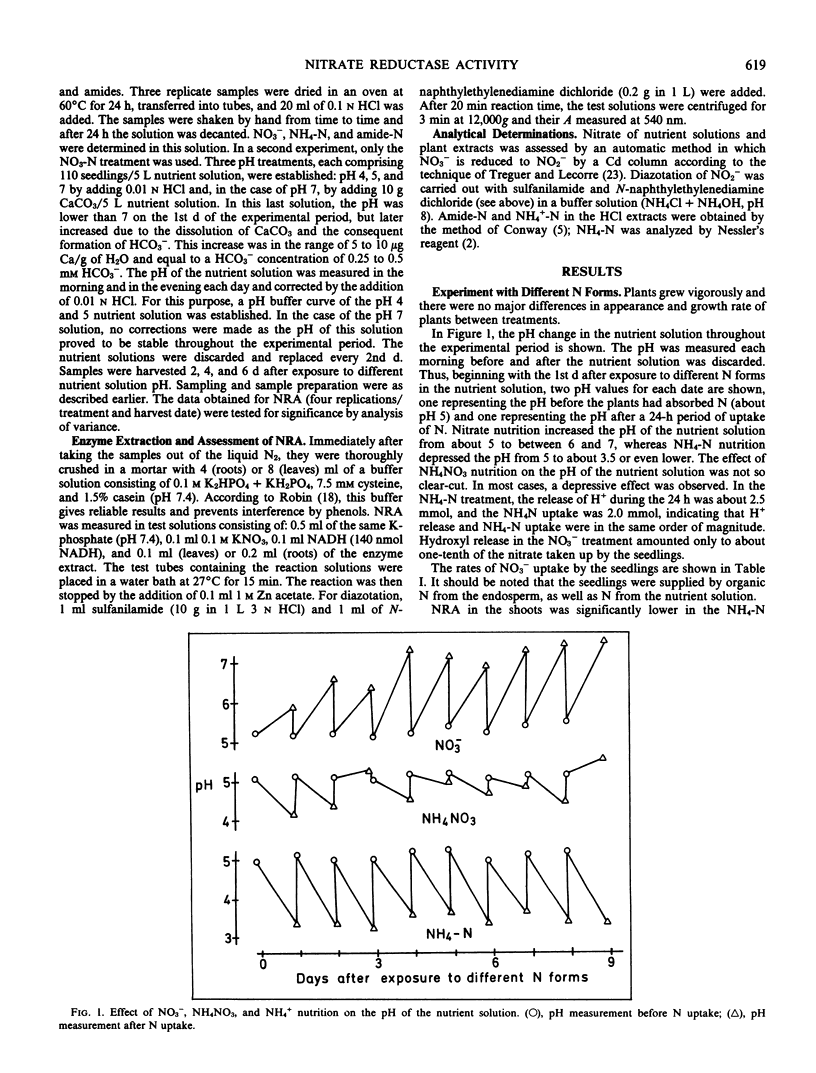
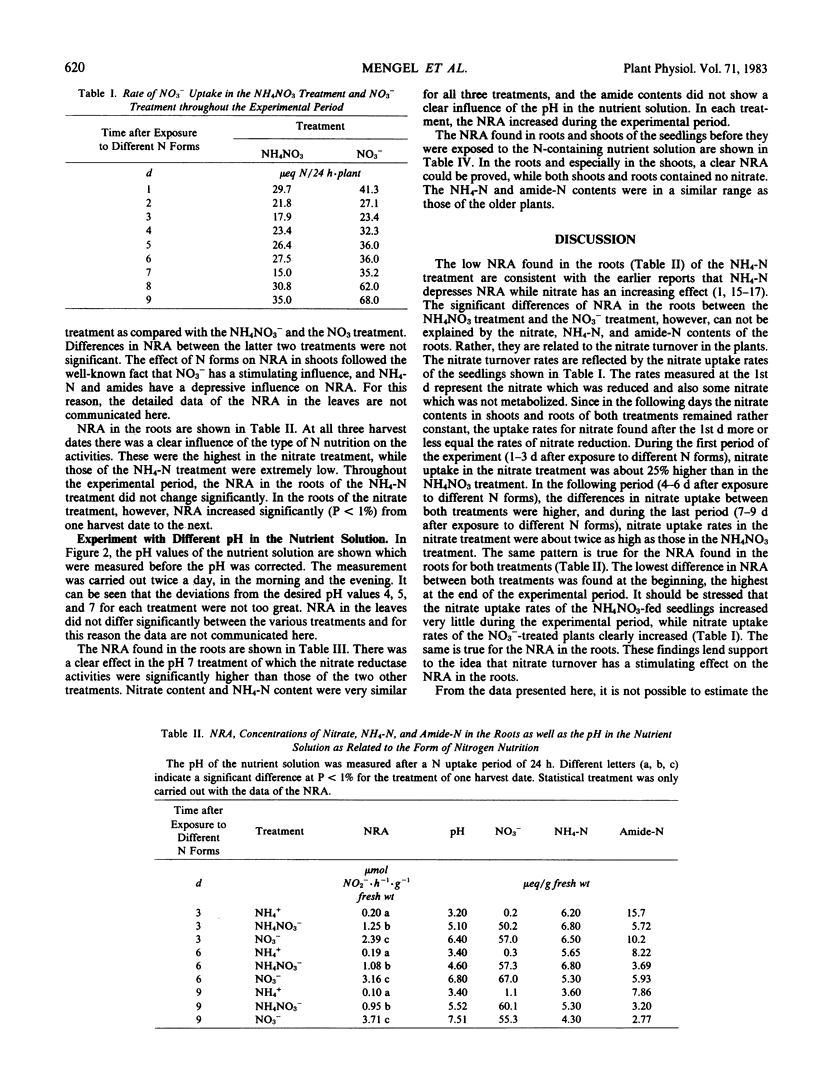
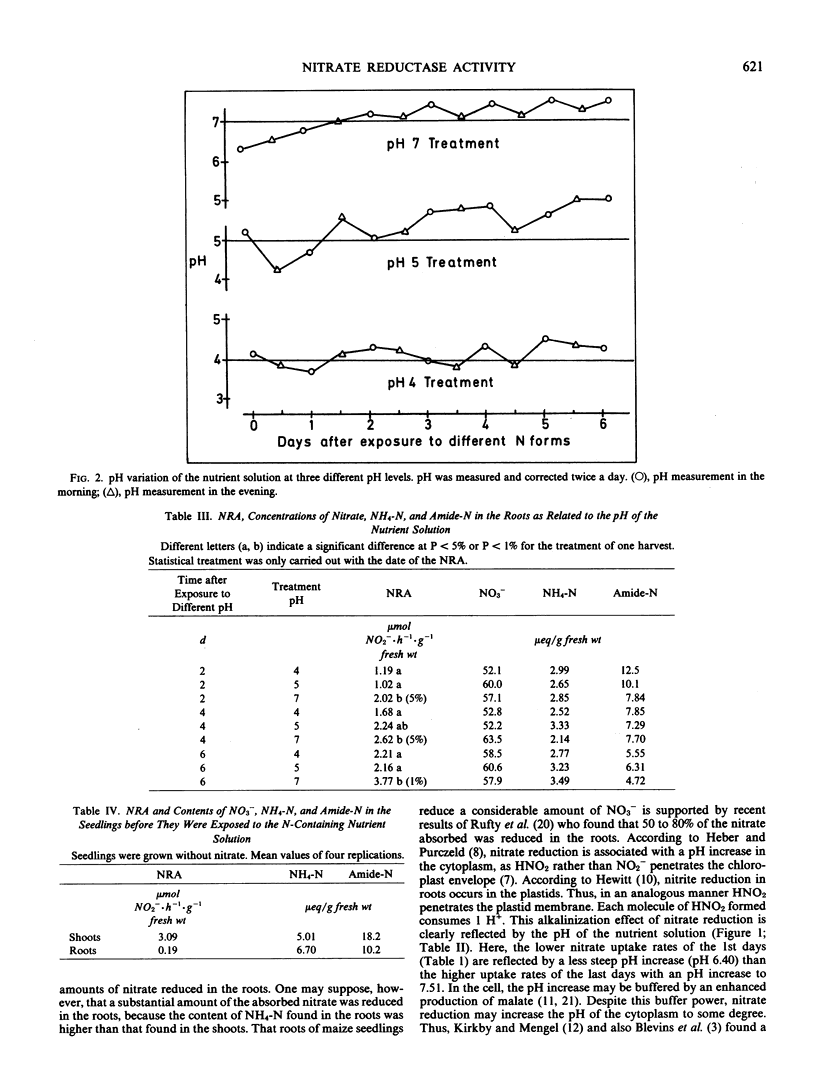
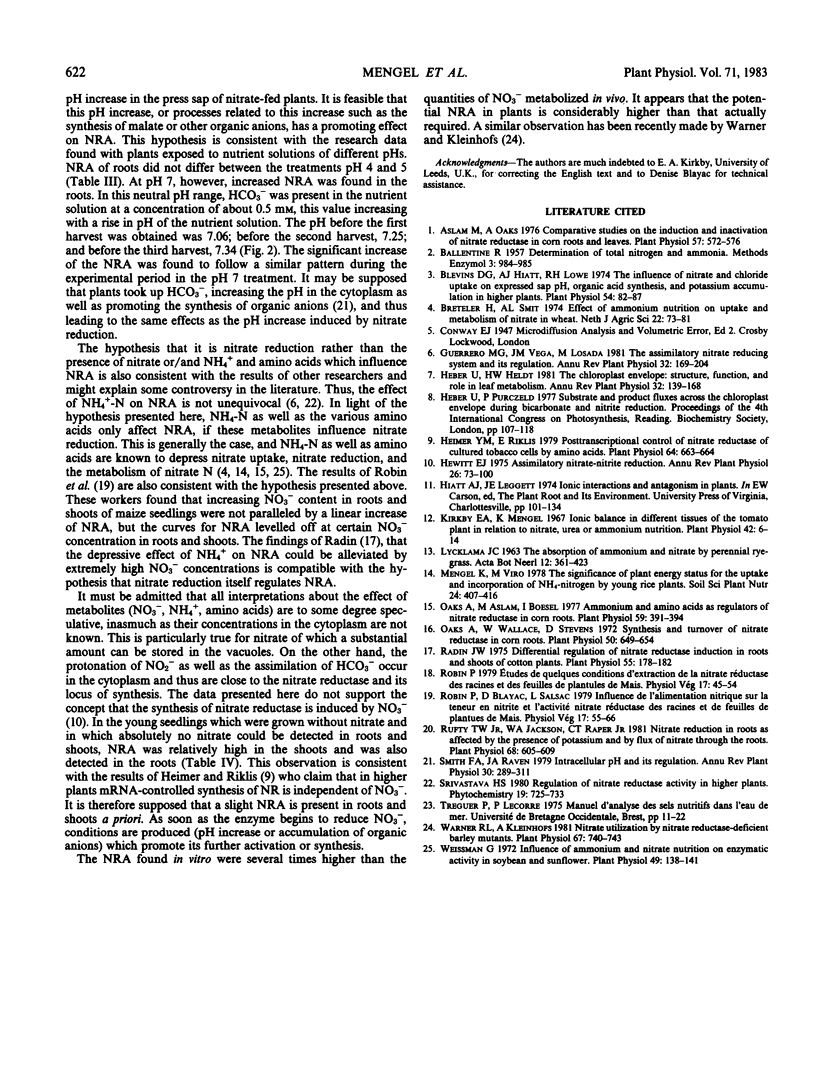
Selected References
These references are in PubMed. This may not be the complete list of references from this article.
- Aslam M., Oaks A. Comparative studies on the induction and inactivation of nitrate reductase in corn roots and leaves. Plant Physiol. 1976 Apr;57(4):572–576. doi: 10.1104/pp.57.4.572. [DOI] [PMC free article] [PubMed] [Google Scholar]
- Blevins D. G., Hiatt A. J., Lowe R. H. The Influence of Nitrate and Chloride Uptake on Expressed Sap pH, Organic Acid Synthesis, and Potassium Accumulation in Higher Plants. Plant Physiol. 1974 Jul;54(1):82–87. doi: 10.1104/pp.54.1.82. [DOI] [PMC free article] [PubMed] [Google Scholar]
- Heimer Y. M., Riklis E. Posttranscriptional control of nitrate reductase of cultured tobacco cells by amino acids. Plant Physiol. 1979 Oct;64(4):663–664. doi: 10.1104/pp.64.4.663. [DOI] [PMC free article] [PubMed] [Google Scholar]
- Kirkby E. A., Mengel K. Ionic balance in different tissues of the tomato plant in relation to nitrate, urea, or ammonium nutrition. Plant Physiol. 1967 Jan;42(1):6–14. doi: 10.1104/pp.42.1.6. [DOI] [PMC free article] [PubMed] [Google Scholar]
- Oaks A., Aslam M., Boesel I. Ammonium and amino acids as regulators of nitrate reductase in corn roots. Plant Physiol. 1977 Mar;59(3):391–394. doi: 10.1104/pp.59.3.391. [DOI] [PMC free article] [PubMed] [Google Scholar]
- Oaks A., Wallace W., Stevens D. Synthesis and turnover of nitrate reductase in corn roots. Plant Physiol. 1972 Dec;50(6):649–654. doi: 10.1104/pp.50.6.649. [DOI] [PMC free article] [PubMed] [Google Scholar]
- Radin J. W. Differential regulation of nitrate reductase induction in roots and shoots of cotton plants. Plant Physiol. 1975 Feb;55(2):178–182. doi: 10.1104/pp.55.2.178. [DOI] [PMC free article] [PubMed] [Google Scholar]
- Rufty T. W., Jackson W. A., Raper C. D. Nitrate Reduction in Roots as Affected by the Presence of Potassium and by Flux of Nitrate through the Roots. Plant Physiol. 1981 Sep;68(3):605–609. doi: 10.1104/pp.68.3.605. [DOI] [PMC free article] [PubMed] [Google Scholar]
- Weissman G. S. Influence of ammonium and nitrate nutrition on enzymatic activity in soybean and sunflower. Plant Physiol. 1972 Feb;49(2):138–141. doi: 10.1104/pp.49.2.138. [DOI] [PMC free article] [PubMed] [Google Scholar]


